February 5, 2015
Part V of an investigative report. [Part I, Part II, Part III, Part IV]
The Conceptualization of Kapawi
he Kapawi Ecolodge, although marketed as a vision first conceptualized by the Achuar, was, in reality, first conceptualized by entrepreneur newspaper mogul Carlos Pérez Perasso and Dan Kouperman, an experienced adventure tour guide. [“The newspaper The Universe was founded in 1921 in the coastal city of Guayaquil, by Ismael Pérez Pazmiño. Management has historically remained in the hands of heirs Pérez. Carlos Pérez Perasso, also a Galapagos Islands tour operator, raised the prestige of the newspaper until it became the largest daily national newspaper in Ecuador, and one of the most influential.” [Source] [See part I of this investigation for further background on El Universo and how the ideologies upheld by this powerful family have undoubtedly influenced/impacted isolated Achuar communities.)
“There were always passengers on board [occupancy rates were high], and as it was a good business. So, the directors began to wonder, why not expand?” — Arnaldo Rodriguez
“It was the early 1990s, and Canodros had become a well-known tour operator in the Galapagos by then, doing well with their ship Explorer. ‘There were always passengers on board [occupancy rates were high], and as it was a good business. So, the directors began to wonder, why not expand?’ Rodriguez remembered. ‘We had originally picked an area in the highlands, and started looking for people to associate with.’ The directors and Koupermann were intrigued by the idea of exploring the lowlands, especially because visitor interest in the rainforest seemed to be on the rise. In fact, they hoped that 40% (2,800 passengers per year) from the Galapagos operation might have an interest in visiting the Amazon, and they began imagining an Achuar ecolodge as an add-on to Galapagos.” [1]
“When we approached them in 1993 for the first time they lived in communities and had contact with the state via military detachments, the ministries of health and education, and the Silesian missions, Dominicans, and Evangelicals,” says Kouperman, who is also quick to caution how an outsider should perceive the Achuar.” [Source]
Kouperman was and is not overly sentimental, his ambitions strikingly clear: “To assume that primitive and isolated cultures with little contact with the western world are not going to change is a utopia[n] [idea]. These cultures are dynamic and always adapt to the times.” [Source]
In Kouperman’s world, the Achuar’s “adapting to the times” is a good thing.
One could argue that the Achuar people have simply undergone a natural and internal evolution toward capitalism that would have evolved even without the influence of Pachamama Alliance and their business alliances – but who would have the audacity?
As Euro-Americans who have destroyed an entire planet (i.e., the uncivilized), it is somewhat incredible that we have the audacity to bring “our knowledge” to the remaining few who have successfully survived (legitimately sustainable, in the most real sense of the word) for centuries outside of the industrialized civilization (i.e., the civilized).
And yet we need to believe that they somehow need us. Perhaps this lie assists in denying the fact that we are a culturally and emotionally starved people – a commodity culture that cannot yet admit that our choice for material wealth, which supersedes our (gutted) instinct to protect our children from harm at all costs, is collectively pathological. Emotionally malnourished, we have perhaps produced an entire populace drowning in subconscious self-loathing and self-hatred. Anorexia nervosa pales in comparison to the distorted self-image of Euro-Americans.
“The Third World has thus become not just a playground for Western fantasies (Maoz, 2005:223), but also the world producer of ‘natural’ resources such as authenticity, nativity, exoticism, sensuality, the picturesque, adventurism, spectacle, and even catastrophe and destruction (see post-Tsunami tourism).” [Source]
Revolution and enslavement do not always comes by way of a gun; likewise colonialism. Prior to the NGOs of the non-profit industrial complex becoming the missionaries of the 21st century, we had the “founding fathers” of colonialism, 19th and 20th century missionaries of the church:
“Between 1968 and 1970, Catholics and Evangelicals began to enter Achuar territory with an evangelizing intent. Although the missionaries met with limited success in their quest for souls they did initiate a process of increasing intercultural contact that would slowly begin to change the Achuars’ way of living. For example, it was the Catholic missionaries who suggested to the Achuar that there might be some advantage to living in small villages, which is how many Achuar live today.” — Kapawi Ecolodge Website | The Achuar Community of Ecuador’s Recent History
The Kapawi website states “[Y]our official Amazon Jungle excursion begins in Shell, near the Amazonian frontier town of Puyo. This is the headquarters for the Achuar people outside of their rainforest territory. Shell can be reached overland from Quito in about four and one-half hours by public bus, or by private car, van or motor coach.”
GeoPolitics | The Missionary Hub of Quito
“That men do not learn very much from the lessons of history is the most important of all the lessons that history has to teach.” ― Aldous Huxley
Past: Historical photo of MAF in the early years, distributing bibles in Guatemala.
Present: Photo: MAF International, the ‘mobile ministry’: “The project has grown from putting a few Christmas videos on the cards, to adding Christmas carols, images, audio, the ‘JESUS Film’ series and an audio Bible. A Christmas message recorded by an MAF staff member is also included. The message encourages people to remember Jesus this Christmas, and discusses how to become a Christian. December 18, 2013, Source
Above: MAF utilizing social media to “share the love of Jesus Christ through aviation and technology so that isolated people may be physically and spiritually transformed.”
Above: From MAF Africa website: “Our vision is to see isolated people physically and spiritually transformed in the Name of Jesus Christ and for all people to have access to both the Gospel and resources that advance God’s Kingdom.” [Source]
Not found on the Kapawi website is the history of Shell, which is significant. The town named Shell (also La Shell, or Shell-Mera) is named after the Royal Dutch Shell Company and the smaller town of Mera, which is 5 miles (8 km) to the northwest. It was established in 1937 as a Shell Oil Company base. Around 1949, Shell became reoccupied by the Mission Aviation Fellowship (MAF), founded in 1945.
On January 8, 1956, MAF-US pilot Nate Saint and four other missionaries who had been attempting to make contact with the Huaorani tribe under the auspices of Operation Auca were killed by the Huaorani when they landed (via plane) in Huaorani territory. Key political forces leading up to and beyond “Operation Auca” included, but were not limited to, the CIA, Nelson Rockefeller, President Eisenhower, Ecuadorian President Galo Plaza and William Cameron Townsend (founder of Summer Institute of Linguistics).
1952: When the first Summer Institute of Linguistics (SIL) (founded by William “Cam” Townsend) team arrived in Ecuador, the Huaorani (also known as Waorani, Waodani and Waos) had been reduced to approximately 400 due to enslavement and massacres by rubber barons. The Quichuans, who lived in the area, were said to be terrified of the Huaorani, giving them the derogatory name Auca. Auca is a modification of the Quechua word awqa – which translates to “savage.” “No one in the SIL party entertained any illusion about conquering the Aucas for Christ. No one volunteered. They all accepted the wisdom of other missionaries that the hundred Auca spearmen who had held up civilization’s advance would have no compunction sending white foreigners quickly to their God of Love.” [Source] That is until SIL’s Rachel Saint stepped forward. It was through her brother, MAF-US pilot Nate Saint, that Rachel Saint learned of the Huaorani’s existence. She became enamoured with a vision that she had been chosen by God to “save” the “brown tribe in the green forest.” While this was unfolding, Shell’s Director, General James Doolittle, was conducting a secret investigation of the CIA’s covert operations in Ecuador at US President Eisenhower’s request (Doolittle would befriend Nate Saint in 1954). Upon receiving the findings (in 1954) Eisenhower gave the report to CIA’s Allen Dulles.
“Two months later, he appointed a new special assistant on Cold War strategy and psychological warfare. As the president’s personal representative on the National Security Council, this man would oversee the global escalation of CIA covert warfare. A Planning Coordination Group, which came to be called simply the “Special Group,” was established. In a position of authority over policy second only to the president himself and actually exercising much more power than he did, three men –CIA director Allen Dulles, Undersecretary of State Herbert Hoover, Jr., and Undersecretary of Defense Roger Kyes – would be in command, chaired by the president’s new special assistant: Nelson Rockefeller”. — Rachel Saint vs. The Huaorani
On a bitterly cold winter day in Chicago (December 17, 1955), one week prior to Rockefeller’s resignation as the presidential assistant for psychological warfare and Cold War strategy, one of the Cold War’s least-known but most significant events took place outside an airport hangar. Amidst a crowd and the press, Chicago mayor Richard J. Daley dedicated a plane (a CIA assett named the Helio Courier) [2] that would transport Wycliffe Bible Translators into the depths of the Ecuadorian Amazon. Present was the notorius Ecuadorian ambassador Jose Chiriboga, “sanctioning the penetration of Ecuador’s remaining Amazonian lands by a well-connected American missionary organization.” [3] “This day marked the beginning of the Inter-American Friendship Fleet [4] [that] he [William Cameron Townsend, founder of Wycliffe Bible Translators and Summer Institute of Linguistics] was promoting in Washington’s corridors and of the Jungle Aviation and Radio Service (JAARS) as an important instrument of the Cold War.” The dedication of the Helio Courier, to be operated by SIL, spelled out that MAF’s Nate Saint’s reign over the Ecuadorian Oriente skies was coming to a close. [Source]
Cam had spent most of his furlough year in the United States in a fruitless effort to convince the oilmen of Tulsa that JAARS was the answer to their prayers, not just his. He needed a publicity coup to win them over and to persuade businessmen in other cities to buy the Helios he had ordered.” — Rachel Saint vs. The Huaorani
The foreign/corporate control and plunder of oil and natural resources within pristine, untouched third-world countries was difficult if not impossible due to tribal people who would stop at nothing to protect their lands and people. Consider that Shell’s work crews had fallen to Indian spears and poisoned darts from blow guns. [Source] Ultimately, subjugation, allowing access, was won utilizing missionaries, bibles and “gifts.” “Planes were becoming the most important means for governments involved in ‘nation-building’ in the Third World to secure, penetrate, and colonize frontiers with landless peasants.”
Cam needed more money to buy more planes but the recognition of JAARS’s “unique potential” was not enough to convince the establishment to part with their money.
Then, as the Akha Heritage Foundation [5] has documented, “as if from the Hand of God, lightning struck in the glint of spears.” [6]
The spear struck on January 8, 1956, when MAF’s Nate Saint and four other missionaries killed in Operation Auca were transformed into martyrs by American television. (“Life magazine published a gripping account of Christian martyrdom, which caused a worldwide sensation. The doors of nationally known politicians, such as Vice President Nixon and former president Harry Truman, now opened to Cam’s Helio promotions.”) Via American television, Rachel Saint was made into the most famous missionary in the United States. (“Overnight 30 million Americans could recognize the woman with intense eyes who had dedicated her life to converting her brother’s killers.”)
Although it appeared Operation Auca was now over, it had, in fact, only just begun.
+++
“I speak of the Christian religion, and no one need be astonished. The Church in the colonies is the white people’s Church, the foreigner’s Church. She does not call the native to God’s ways but to the ways of the white man, of the master, of the oppressor. And as we know, in this matter many are called but few chosen.” ― Frantz Fanon, Concerning Violence (Chapter 1 in The Wretched of the Earth, 1961)
Two years later, in 1958, the Hospital Vozandes del Oriente (the dream of Nate Saint) was established as the first hospital in that region of Ecuador. In August 1964, Nate Saint Memorial School opened in Shell for missionary children. In 1985, a new Hospital Vozandes was opened on the other side of the Motolo River. [“Hospital Vozandes-Shell was borne of the late missionary Nate Saint’s passion to see the people of Ecuador’s rainforest hear the gospel of Christ. It was dedicated in 1958 as Epp Memorial Hospital in Shell, known in Ecuador as Hospital Vozandes del Oriente HVO).”][Source]
In 1949, Dr. Catherine Peeke joined Wycliffe Bible Translators and Summer Institute of Linguistics (SIL) and worked in Mexico, Peru and Ecuador as a linguist and translator. Peeke then began two years of language study of the Waorani people in Ecuador. For 14 years, Dr. Peeke worked closely with SIL staff member Ms. Rosi Jung (from Germany) and with several Waorani to complete the translation of the New Testament in the native language. After the dedication of the Waorani New Testament in 1992, Peeke retired but returned to Ecuador several times as a volunteer. Both Peeke and Jung traveled to jungle villages to teach the Waorani in the use of the translated Scriptures. In retirement, Peeke completed a bilingual dictionary in Waorani and Spanish. She passed away in 2014, a lifelong member of First Presbyterian Church, Weaverville, North Carolina. [Source and source]
Ecuador, Texaco, and missionaries from the SIL/WBT collaborated to pacify the Huaorani and end their way of life.
It was during this period, in the late 1960s and early 1970s, that most Huaorani were “contacted” by “cowode” (strangers) for the first time. The missionaries who worked with Texaco had their own converging interests. SIL/WBT described the “Aucas” as “murderers at heart” and its operation to convert them as “one of the most extraordinary missionary endeavors” of the twentieth century, “living proof of miracles brought to pass through God’s word.” [Source]
Jaime Roldós Aguilera (November 5, 1940 to May 24, 1981) was President of Ecuador from 10 August 1979 until his death on 24 May 1981. In his book, Confessions of an Economic Hitman, Pachamama co-founder John Perkins tells us that Rondo accused the Summer Institute of Linguistics (SIL) (the evangelical missionary group from the US) of sinister collusion with the oil companies: “SIL had been working extensively with the Huaorani tribe in the Amazon basin area, during the early years of oil exploration, when a disturbing pattern emerged. Whenever seismologists reported to corporate headquarters that a certain region had characteristics indicating a high probability of oil beneath the surface, SIL went in and encouraged the indigenous people to move from that land, onto missionary reservations; there they would receive free food, shelter, clothes, medical treatment, and missionary-style education. The condition was that they had to deed their lands to the oil companies.”
And while Perkins reveals Rockefeller connections that threatened Roldós (it is apparent that Perkins admires Roldós greatly), he fails to comprehend the imperial ties/interests within his own organization – including grants and Rockefeller financing:
“Rachel Saint, the sister of one of the murdered men, toured the United States, appearing on national television in order to raise money and support for SIL and the oil companies, who she claimed were helping the ‘savages’ become civilized and educated. SIL received funding from the Rockefeller charities. Jaime Roldós claimed that these Rockefeller connections proved that SIL was really a front for stealing indigenous lands and promoting oil exploration; family scion John D. Rockefeller had founded Standard Oil – which later divested into the majors, including Chevron, Exxon, and Mobil. […]
“But Roldós would not cave in to intimidation. He responded by denouncing the conspiracy between politics and oil – and religion. He openly accused the Summer Institute of Linguistics of colluding with the oil companies and then, in an extremely bold – perhaps reckless – move, he ordered SIL out of the country. Only weeks after sending his legislative package to Congress and a couple of days after expelling the SIL missionaries, Roldós warned all foreign interests, including but not limited to oil companies, that unless they implemented plans that would help Ecuador’s people, they would be forced to leave his country. He delivered a major speech at the Atahualpa Olympic Stadium in Quito and then headed off to a small community in southern Ecuador.”
Is history repeating itself? It is no secret that those in charge of psy-ops simply “rinse, lather and repeat” the same tried and true destabilization strategies that dupe the masses over and over again. Today, substitute environmental markets for oil corporations, NGOs for religious missionaries. Rondós’s speech is echoed through both Educador’s President Correa and President Morales of Bolivia today.
Roldós died there in a fiery airplane crash, on May 24, 1981 with all the markings of a CIA-orchestrated assassination.
“Osvaldo Hurtado took over as Ecuador’s president. He reinstated the Summer Institute of Linguistics and their oil company sponsors. By the end of the year, he had launched an ambitious program to increase oil drilling by Texaco and other foreign companies in the Gulf of Guayaquil and the Amazon basin…. Omar Torrijos (president of Panama), in eulogizing Roldós, referred to him as ‘brother.’ He also confessed to having nightmares about his own assassination; he saw himself dropping from the sky in a gigantic fireball. It was prophetic. […] But Torrijos was not buckling. Like Roldos, he refused to be intimidated. He, too, expelled the Summer Institute of Linguistics, and he adamantly refused to give in to the Reagan administration’s demands to renegotiate the Canal Treaty. Two months after Roldós’s death, Omar Torrijos’s nightmare came true; he died in a plane crash. It was July 31, 1981.” [Source]
Everything changes. Everything stays the same.
Hallefuckinglujah
“I must confess, I hadn’t been to Mass in 10 years or something, and suddenly I’m going to meet Mother Teresa. I cancelled all the meetings I had with the IMF, the World Bank, UNICEF, and everything that day. I went straight to a church. I went to confession. I did the rosary about a 100,000 times. I did everything I could to prepare myself.” — Lynne Twist (Pachamama co-founder) interview, 2009
Today, we have what constitutes a full-blown orgy or even a modern day Sodom and Gomorrah of 19th/20th century missionaries – infused with the modern day 21st century missionaries, the NGOs.
“In Ecuador, there is Catholicism, Mormonism, animism and paganism…. There is a need for the truth and for discipling people in the truth and all they are getting is lies from Catholicism and Mormonism. We have a responsibility to go all nations, tribes, tongues and peoples and we need to go back to places where we have been before and take the gospel there again.” — The Southern Baptist Theological Seminary, Experiencing the culture firsthand, February 23, 2006
It is imperative to note that while missionary Nate Saint with the four other missionaries are today considered heroic martyrs (killed by the Waodani people), there is no such martyrdom for the millions of Indigenous peoples slaughtered and enslaved by the Europeans for centuries.
Unlike stealth NGOs within the non-profit industrial complex, the Hospital Vozandes-Shell makes no attempt to tone down nor disguise colonization efforts:
“The lives of Waorni warriors and their families were saved and the gospel went forth among these jungle people…. Here we have the privilege of helping some 20 patients find personal faith in Christ each month.” [Source]
Today Shell is a much larger town, brimming with Spanish-speaking churches, hangars, a hospital, schools, hotels, and missionary guest houses. Nate Saint’s house still stands. The airport is also still a major base of operations for the Mission Aviation Fellowship.
The feature-length documentary film, Beyond Gates of Splendor, released in 2004, surmises the “success” of the missionaries as follows: “And now they are no longer the Auca, the savage…” [http://youtu.be/BD8LZFht9i4] The documentary closes with the showing of the former “killers” – now transformed into “God Followers.”
Today’s 21st century missionaries/NGOs have traded in the baggy hemp trousers and the long tunics of their predecessors for Bagir EcoGir all-organic suits. Espresso-coloured bamboo fibres avec buttons made from dried nuts of tagua palm ecologically harvested from the rainforest. Made exclusively for white male privilege – made possible by those exploited and paid next to nothing in the harvesting of the resources, by those exploited in sweatshops producing clothing they will never be able to afford in their lifetime. On the left, we have male, blond, blue-eyed Jesus. On the right, we have economic growth, and markets as sacrosanct.
Occupation
“The only way we’ll get freedom for ourselves is to identify ourselves with every oppressed people in the world. We are blood brothers to the people of Brazil, Venezuela, Haiti, Cuba – yes Cuba too.” ― Malcolm X
The occupation of Shell commenced in 1937 with the Shell Corporation, recommenced in 1949 by Mission Aviation Fellowship, and expanded at the end of the 20th century with the presence/onslaught of non-profits/NGOs financed from abroad. The occupation continues to this day.
Occupations need not exist only in the form of military force; they can also be the result of compliance via psychological methods and soft power.
The definition of colonize is to “settle among and establish control over”; “the act of setting up a colony away from one’s place of origin.” Human colonization refers strictly to migration, for example, to settler colonies, trading posts, and plantations, while colonialism deals with this, along with ruling the existing indigenous peoples of styled “new territories.” The definition of an occupation is the “control of a country by a foreign military power”; “the seizure and control of an area by military forces, especially foreign territory and/or the term of control of a territory by foreign military forces.” Then how to define psychological/soft-power occupation as successfully practised by the former missionaries and 21st century missionaries/NGOs?
We can safely define soft-power occupation (the act of occupying; the state of being occupied) as 1) enculturation: the process by which a person adapts to and assimilates the culture in which he lives, 2) social control: control exerted (actively or passively) by group action and norms, 3) socialization: the adoption of the behaviour patterns of the surrounding culture, 4) cultivation: socialization through training and education to develop one’s mind or manners, 5) auto limitation: social control achieved as a manifestation of self-will or general consent, 6) acculturation: the process of adopting the cultural traits or social patterns of another group, especially a dominant one, 7) psychology: the scientific study of all forms of human and animal behaviour, sometimes concerned with the methods through which behaviour can be modified.
End Notes:
[1] Source: Case study: THE KAPAWI INDIGENOUS-CORPORATE PARTNERSHIP FOR ECOTOURISM IN ECUADOR
[2] “Six months before, another unusually long-winged airplane had zoomed into the stratosphere before startled onlookers, but it would be another half year before the CIA’s U-2 would make its secret maiden voyage into Soviet skies. This plane, however, was ready now, and although its design came out of the same aeronautical origins as did the U-2, the Helio Courier was no secret. It could not be, for it was designed to be flown at low altitudes and low speeds, not in the heavens beyond sight and sound. Both planes would make history for the CIA. But the U-2’s mission would be exposed to the world within five years while the Helio’s use as a CIA asset would remain virtually unknown for three more decades.” Helio is the Greek word for “sun,” and courier is the Latin word for “messenger. [Source]
[3] “Richard J. Daley, looking the model of the stocky Irish American big-city politician, was a conservative but devout Roman Catholic. The newly elected mayor of Chicago was absolute ruler of arguably the most powerful Democratic machine in the United States. Daley had not risen to power championing the ambition of Fundamentalist Protestants in Catholic countries like Ecuador. Yet here he was, officially welcoming the crowd, including members of the press, to the dedication of an airplane that would bring the Wycliffe Bible Translators into the heart of the Ecuadorian Amazon. Standing beside Daley was Ecuador’s ambassador Jose Chiriboga, who had earned a reputation for shrewdness as mayor of Quito equal to Daley’s in Chicago. Only twelve years before, he had confounded his countrymen by signing over half of Ecuador’s Amazon to Peru at Washington’s behest. Pearl Harbor had made hemispheric unity essential, Chiriboga had explained, and the war between Ecuador and Peru had to end, even if that meant that Ecuador would lose land rumored to be coveted by Standard Oil’s Peruvian subsidiary, International Petroleum Company. And now here was Chiriboga again, as ambassador of a self-described radical nationalist government, sanctioning the penetration of Ecuador’s remaining Amazonian lands by a well-connected American missionary organization.” [Source]
[4] “To ‘strengthen the Good Neighbor feeling even more,’ Townsend suggested, the planes should be referred to as the ‘Inter American Friendship Fleet.'” — The Development of the Wycliffe Bible Translators and the Summer Institute of Linguistics, 1934-1982
[5] “We are strongly opposed to mission organizations which would remove Akha Children and destroy Akha language, literature, culture and identity. We believe that the defense of land rights and other human rights is at the heart of any just system, and we would oppose those who remain silent while these abuses continue.” [Source]
[6] “In September 1955, the same month that Ambassador Chiriboga announced that the Ecuadorian government no longer recognized the Oriente concessions of a Canadian-owned company, Peruvian Oils and Minerals Company, Nate suddenly launched Operation Auca.” [Source]

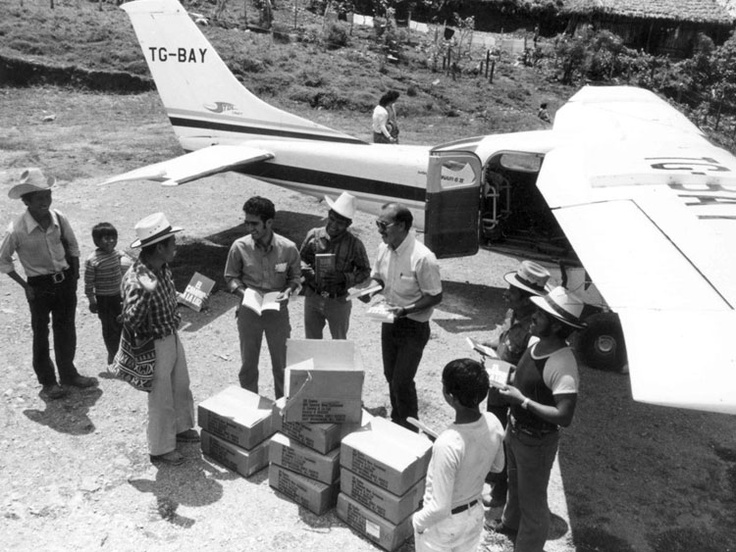
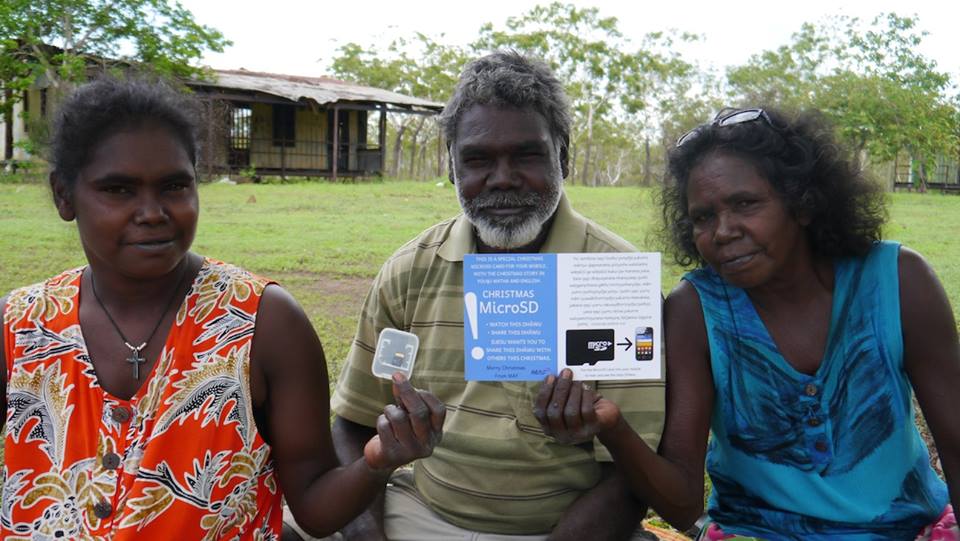
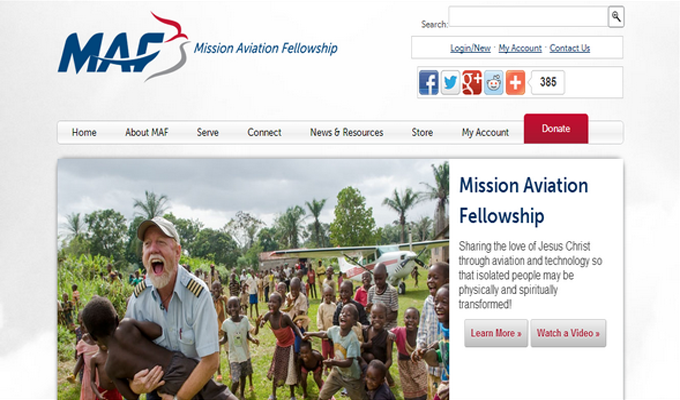
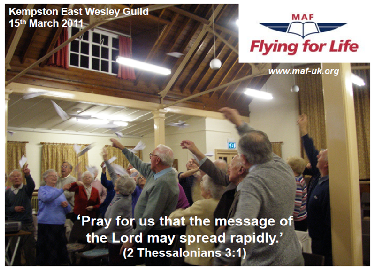
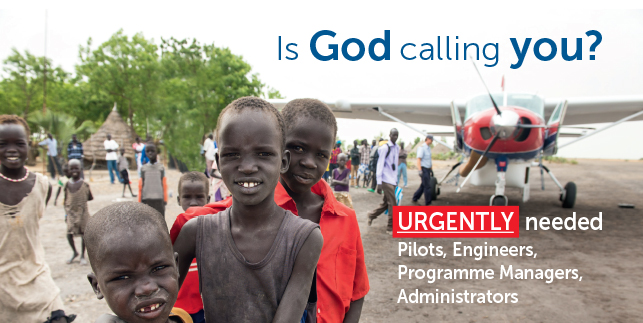
 Become a Patron!
Become a Patron!